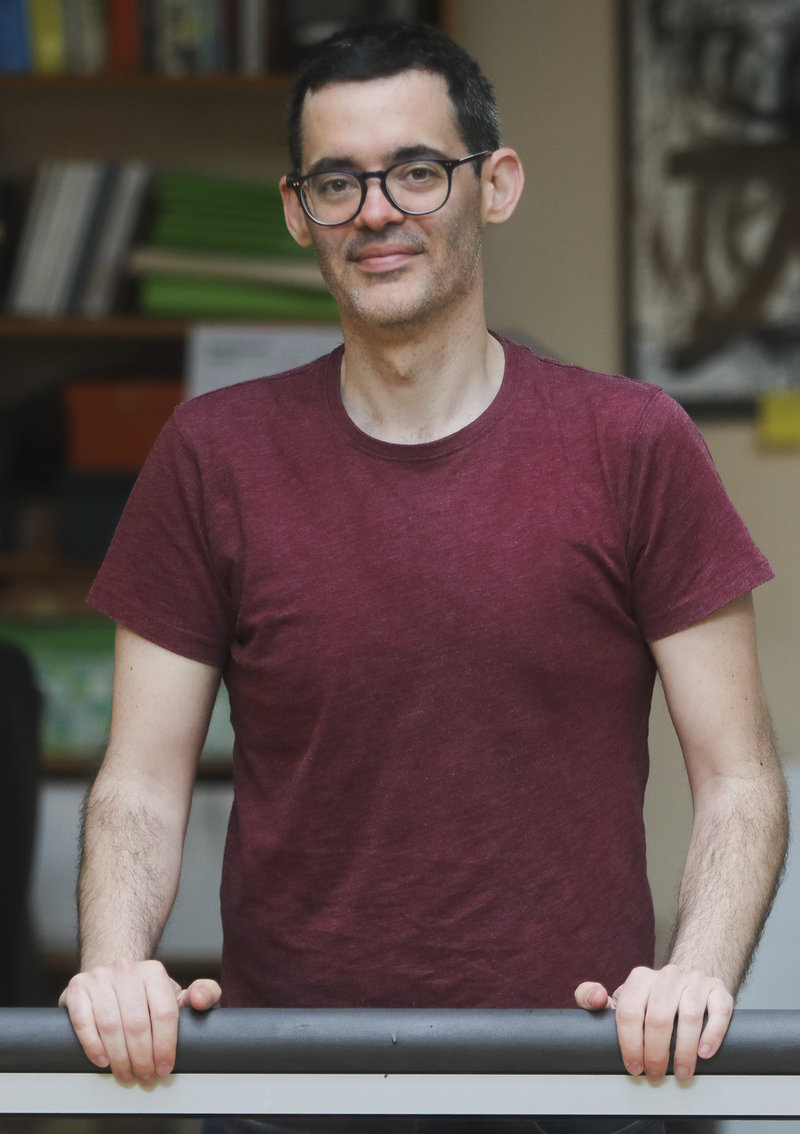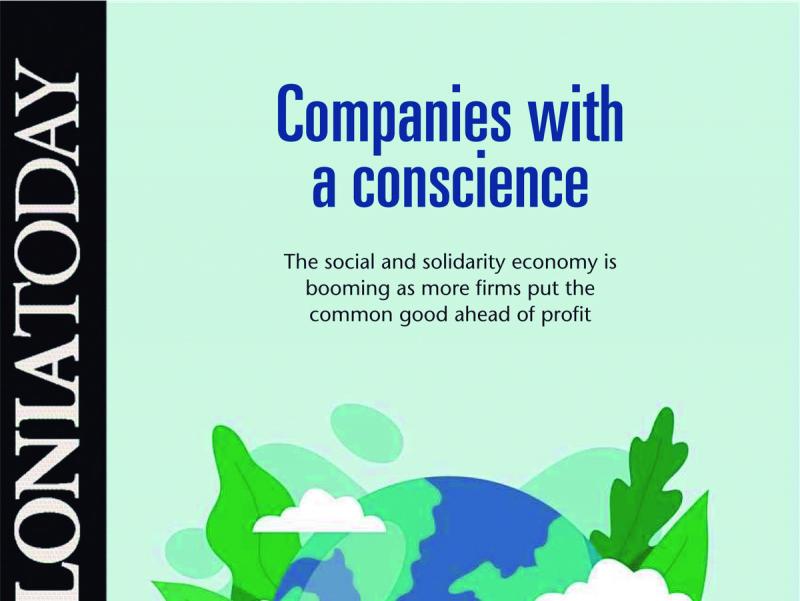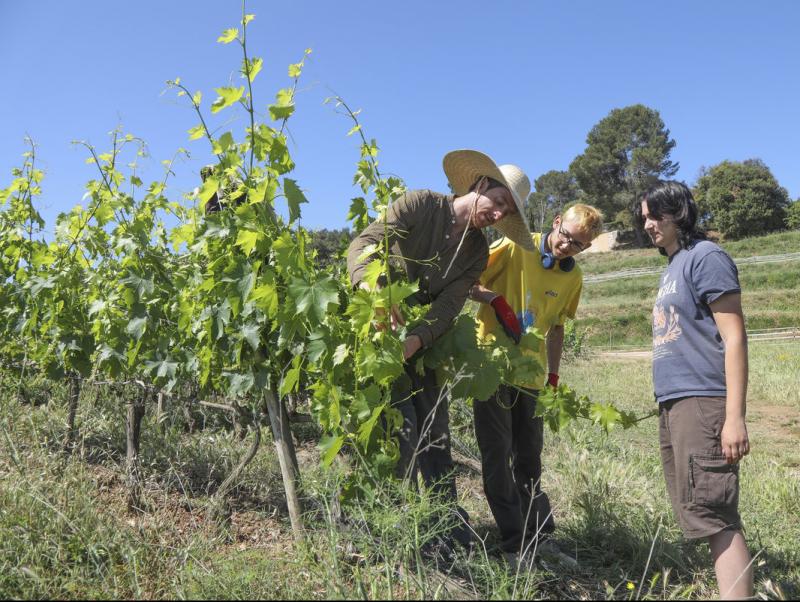The goal of the Solidarity Economy Network (XES) is an economy that puts people and society’s needs first, and to help achieve this the platform is behind such initiatives as the Solidarity Economy Fair of Catalonia – which will hold its 10th edition in October – and the Pam a Pam map, which is a directory of the solidarity economy in Catalonia. As Guillem Subirachs, a specialist in Social Balance for XES, explains, people are more open to the possibility of another way of producing and consuming.
What is the social and solidarity economy?
It covers a set of diverse socio-economic practices that have one thing in common: putting people first and prioritising needs compared to the conventional economy, which puts profit and competition first. Also, project management is democratic and follows criteria of solidarity, environmental sustainability and participation.
What type of companies and organisations are part of the XES network?
The social and solidarity economy was always linked to a series of specific legal profiles, the best-known being cooperatives, but it’s a diverse ecosystem. There are also insertion companies [organisations that find work for disadvantaged people], all types of associations, third sector foundations, and community initiatives such as consumer cooperatives, exchange networks and time banks. Our approach is that any project can be part of the ecosystem if it puts people and needs at the heart of its operation and it functions according to certain principles. To give an example, decisions cannot be made by just one person who doesn’t take into account the social impact of their actions. For us, being part of the solidarity economy implies a certain way of doing things. That is why XES promotes projects like Pam a Pam and Social Balance, in which we ask organisations how they organise themselves, what impact they generate, what are their levels of job quality, how they make decisions, and so on. This way we can certify that they comply with what we understand as the social and solidarity economy.
Have the pandemic and the supply chain crisis boosted your argument that another way of consuming is needed?
In our 2020 social market report we pointed out that there were essential sectors in which the market was not providing what we needed, such as health and care, food supply and the provision of social elements. The energy crisis and everything that’s happened since has reinforced this idea. Covid has also highlighted another very important thing: there are forms of organisation that do not originate with the market.
For example?
When there was a lack of masks, cooperatives and other solidarity economy projects pivoted and made them. Support networks were also created in neighbourhoods and attended to the needs of vulnerable groups, such as people who could not leave their homes to buy food or medicine. The pandemic showed that there are many areas not covered either by the market or society and so we must organise ourselves to cover them. We’ve seen this solve real needs and there’s now a growing awareness that there’s a different way of doing and consuming things.
Has the health crisis caused a change in habits?
Agroecological projects have grown. A report we did with the Arran de Terra cooperative shows there’s been an exponential increase in local trade, consumer groups, and so on. In all sectors, and more so in essential ones, it’s very important to consume locally and to be aware of the impact we generate. It makes no sense to buy fruit and vegetables on the other side of the world when we have a great supply locally, and this has a lot to do with the social and solidarity economy.
Are many consumers abandoning the corporations for social enterprises?
We see it in the energy sector, where some interesting initiatives are emerging, but also in the telecommunications and mobility markets. Som Energia has over 80,000 members and supplies even more people, demonstrating that a good service can be provided by making decisions according to cooperative values, prioritising people over profit, when there is no board of directors distributing dividends to shareholders, as with Ibex firms. There are many projects like this, and in strategic sectors, where nobone is getting rich and basic needs are being met.
Can the price, for example, of a t-shirt made here sustainably compete with a low-cost piece of clothing made in Asia?
While being aware that for many people and families price is important, people should also be aware that when we buy a t-shirt made in Bangladesh, the price reflects the working conditions of the workers or the environmental impact of the transfer of raw materials and their sale. We have to consider whether we want t-shirts for five euros that are made in subhuman conditions. The Coordinator for Fair Trade and Ethical Finances, an organisation with close links to XES, works hard to make the argument that perhaps we need to change our consumption model and instead of buying ten t-shirts every two weeks, we should buy fewer products of better quality that have less environmental impact. There is a campaign underway now to raise more awareness of this type of sustainable model of consumption.
According to your latest social market report, 63% of workers in the social enterprises studied, those that have obtained the Social Balance stamp from the XES, are women and 61% of managerial positions are held by women.
Year after year, the reports show that there is a lot of parity in terms of employment but we also look at who makes the decisions. In the conventional economy, if you look at a photo of the board of any Ibex company, they will be all men in ties. In the social and solidarity economy there’s a big difference and it’s not due to chance. From our point of view, we want to debate whether we’re promoting diversity, who occupies representative posts, public spaces... For example, we have protocols for not participating in public events in which only men take part. The feminist economics commission of XES makes a series of reflections and passes them to the whole organisation. All organisations in the network must have a feminist perspective and must be equitable.
In your report, employees say salary is one of the worst aspects. Does the sector need to improve in this respect?
There are aspects that are highly valued by workers, such as work-life balance and the possibility of participating in the company and its projects, but year after year the worst aspect is seen as the salary. The good news is that social and solidarity economy companies have been able to withstand the blow of the pandemic and have done so by maintaining jobs. However, the salary issue is a point to improve, as is the dependence on subsidies, which is excessive
Should the purchase of goods and services from the social economy be prioritised in public tenders?
One of the functions of the XES is to make a political impact with issues like this. For years there have been attempts to introduce social clauses and certain practices that favour the solidarity economy, but pressure needs to be exerted to make progress.
Do those in the social economy like yourselves consider socio-economic progress indicators other than GDP?
GDP is the main economic indicator but it doesn’t measure inequalities or other things that in the social sphere we say should be considered to be able to say whether the economy and society are getting better or not.
interview Business



